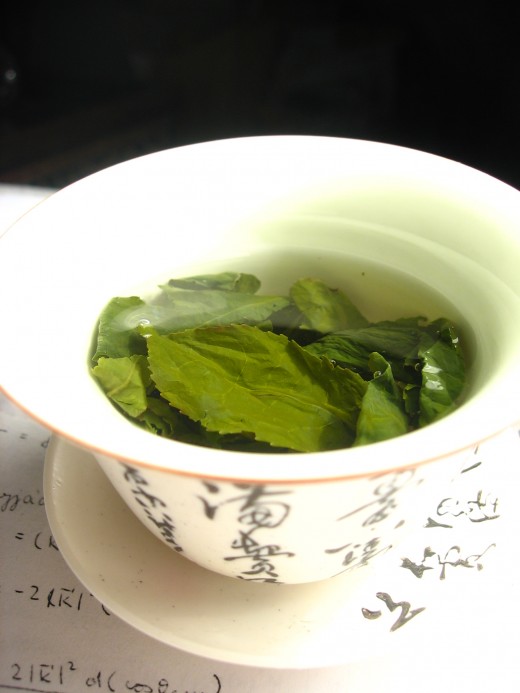The Truth About Drinking Green Tea And Weight Loss
The History of Green Tea
Green tea has been receiving a lot of attention recently, specifically for its use as a weight loss aid and natural metabolism booster. But before the relatively recent diet craze that's swept Western culture, green tea was widely consumed in Asia for thousands of years.
Archeological evidence indicates that green tea has been consumed in China and India for over 5000 years. Later, use spread to Japan, Korea, and the Middle East.
Green tea, like oolong and black teas, is brewed from the leaves of the Camellia sinensis plant. The difference is that black tea's leaves have been exposed to the air for longer, turning them a dark color. Oolong falls somewhere between green and black teas.
In 1191, a zen monk named Eisei wrote a book called Kissa Yojoki, or "The Book of Tea," describing the health benefits of green tea, based on folklore and observation. More than 800 years later, numerous studies have been done to investigate the effects of green tea on health, including weight loss.
Green Tea Health Benefits
Eisei noted that green tea aided in hydrating the body, improving brain operation, digestion, and the function of the urinary system. Today, we've added a few more health benefits to that list.
Green tea contains EGCG, a powerful antioxidant, which helps to eliminate the free radicals in the body, and thus may reduce your risk of cancer and slow the progression of diseases like Alzheimer's, Parkinson's, and Multiple Sclerosis (MS).
Research suggests that green tea drinkers have a lower risk of heart disease. This may be due to the power of green tea to reduce bad cholesterol (LDL) and bolster good cholesterol (HDL).

Green Tea And Weight Loss
In addition to its other benefits, green tea helps in the oxidation of fat, and speeds up metabolism, but researchers don't always agree to what extent. A Japanese study concluded that green tea can boost metabolism up to 4% for two hours after consumption. By contrast, oolong tea was shown to increase metabolism by 10% over the same time period.
A different study had volunteers drink green tea five times a day for three days. Drinking green tea or water with caffeine resulted in about a 3% increase in metabolism over drinking plain water.
So while scientists and nutritionists don't all have the same ideas about just how much good green tea does, in terms of weight loss, nearly everyone agrees that it helps.
Green Tea Side Effects
Some people express concern over the caffeine in green tea. While green tea does contain a sizeable amount of caffeine, each cup contains only a third of the caffeine of a cup of coffee. In general, green tea will not give you the jitters or crash associated with coffee or other highly-caffeinated beverages, but those who are sensitive to stimulants should be wary.
For this reason, before beginning a green tea regimen, you should consult a doctor if you suffer from a blood disorder, kidney disease, high blood pressure, hyperthyroidism, or anxiety or nervous disorder.
Other side effects to watch out for include upset stomach, heartburn, headache, nervousness, insomnia, irregular heartbeat, and irregular bowel movements. If you encounter any of these symptoms while taking green tea, seek medical advice.
To Tea or Not to Tea?
While studies so far haven't demonstrated that it will make the difference between losing weight and not, they have shown that drinking green tea can boost your metabolism and help you burn fat, at least to some degree. I would definitely recommend drinking green or oolong tea regularly, if only for the all the other health benefits of the amazing antioxidant (EGCG) that these teas contain.
Don't drink tea? Try these green tea drink recipes, or make getting healthy that much sweeter with green tea pudding or green tea cake recipes.










